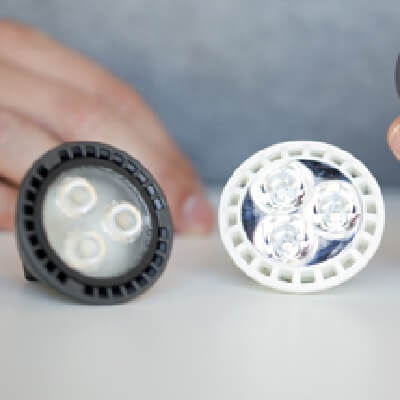
The Lighting industry is one of the oldest and largest industries in terms of market value, employment generation and number of players operating in the industry. The lighting industry is continuously evolving with new technologies and products which are more energy efficient and environmentally friendly in nature. The industry started with incandescent bulbs, gradually moving onto fluorescent tube lights and compact fluorescent lamps and has now progressed to LED (Light Emitting Diodes). With LED, the industry is looking at an optimum solution for energy efficiency and environmental friendliness in a light source.
The fast improvement of performance/ cost ratio of LED chips has stimulated the whole LED lighting market boom in the last 2-3 years. Over molded metal heat sink has become the mainstream design concept especially for “Bulb” type (A-Lamp) LED lamp due to its electrical safety/appearance/ cost advantage and comparable thermo performance vs. metal heat sink.
LEDs are the lighting solution of the future. Projections indicate that the global sales of LED lamps will double annually for the coming years. This will require cost effective, high volume solutions which address the technical challenges of the LED technology.
So why should a manufacturer consider replacing metal and regular plastics in their LED lamps, modules, housings and heat sinks? The truth is that next-generation plastics like DSM’s thermally-conductive plastics offer a wide range of benefits compared to metal:
Stanyl® TC and Akulon® TC offer the opportunity to drive down the integral cost of LED applications. They can be processed in a similar way to other thermoplastic materials – which means that complex heat sinks can be produced at many local companies dealing in injection molding within seconds. In comparison, traditional die aluminium casting technologies impose a complex production process not well suited to the high volume, low cost production requirements for LED lamps.
Furthermore, Stanyl TC and Akulon TC also offer thermal conductivity while securing electrical isolation – this enables new lamp and module designs to drive down the temperature of the electronics or decrease the integral cost of the product.
Sustainability
Then of course there’s the issue of sustainability. The need to reduce the environmental footprint of LED manufacturing is growing every day. By substituting metal for plastics like Stanyl TC in a heat sink, it is possible to reduce carbon footprint up to a staggering 75%.
This is why a growing number of lamp manufacturers are using Stanyl TC and Akulon TC – all supported by DCM’s global team of application experts who work side-by-side with customers on development and production. We also provide in-house design support globally. DSM’s thermally-conductive plastics easily allow for acquiring product certifications. Thermal management is the key to success of LED lighting efficiency and life of the LED. By using DSM’s thermally-conductive plastic in heat sinks, you will get ease of production with production efficiency, design flexibility, and lower weight.
About Royal DSM
Royal DSM is a global science-based company active in health, nutrition and materials. DSM Engineering Plastics established in India in the year 1999 is one of the leading manufacturers of polyamides and polyesters in the country today. DSM’s engineering plastics are widely used in automotive, electrical, electronics and general industries and have thousands of satisfied customers all over the globe. In order to accelerate growth in India, DSM is also looking at emerging applications as well as emerging economies. Sustainability, innovation and change are core to DSM and that is driving the growth of DSM in India. More information can be found at www. dsm.com